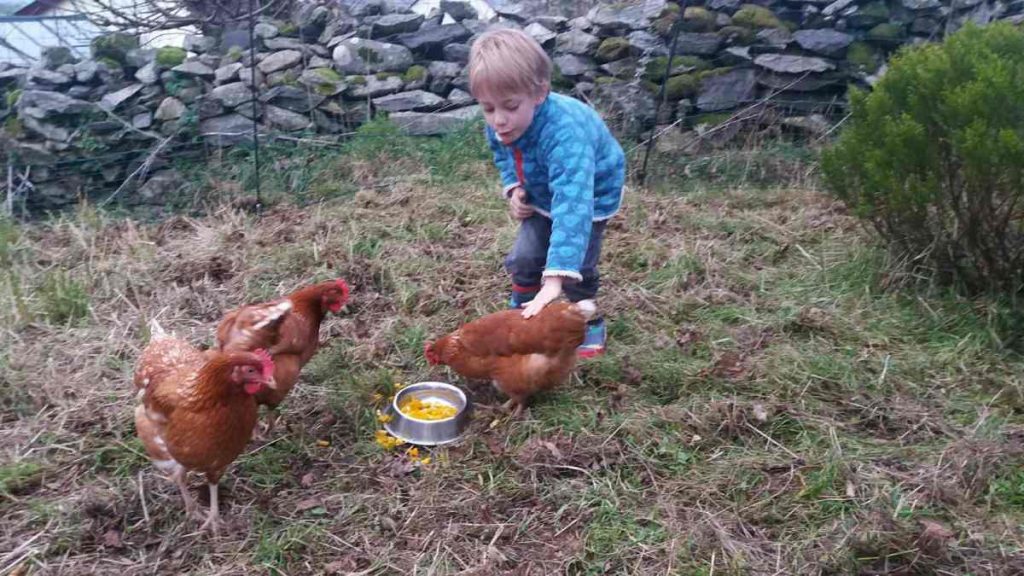Chickens are sweet, fun, and loving creatures that can also provide you with a constant supply of fresh eggs, as long as you care for them correctly. While raising chickens might be simple, caring for them to make sure they stay healthy and happy is a bit more complicated than you might think, especially if you are a first-time chicken owner. Therefore, when you get your first clutch of chickens, you will want to ensure that you can take proper care of them. Just like all other creatures, looking after chickens is a big responsibility, as they need food, water, and enrichment. Within this article, you will find some of our best tips to take care of your new chickens and keep them healthy and happy.
 Space
Space
One of the most important parts of taking good care of your chickens is ensuring you have plenty of space. Although they can sometimes be kept in apartments, this is not ideal, as they typically need more room to live, roost, and forage. Therefore, you will need to consider whether you have the required space to provide your chickens with the best quality of life possible. Also, if you have predators too, you should determine whether you have the necessary space and tools to keep the flock safe.
Food
Next, it’s crucial to select the correct type of chicken feed to provide your chickens with all the essential vitamins and minerals they need to thrive. If you want to find high-quality feed for your chickens, take a look at Little Peckers. Explore a range of low-cost foods that contain beneficial ingredients, that will keep your chickens strong and healthy. You can also browse through a variety of products so that you can get more information about chicken feed and everything else your chickens need to stay in top condition, such as chicken treats and other health products.
Time
While chickens might not need to be taken for walks, caring for them still takes a lot of time. This means that you should ensure you can fit them into your schedule. For example, you will have to feed them daily, clean their coop, refill their water containers, collect their eggs, and check on them regularly, especially if there are a lot of predators in your area. In general, you should plan to spend at least 1 to 2 hours a day taking care of your chickens. You should also check for signs of mites, disease, and injury.
Coop
The coop you choose will depend on the amount and size of chickens you have. There are plenty of efficient chicken coups that are pre-built and can be delivered directly to your door. It’s important to ensure that the coop is predator-proof, well-ventilated, free of drafts, and has ample space considering the number of chickens you want to keep. If you have some experience building things in the past, you might consider constructing your own chicken coop. You may explore a variety of designs online or design your own coop. Whether you decide to buy or build, it’s advisable to place the coop in an area with plenty of grass and dirt patches.
Bedding
Choosing the perfect bedding is another crucial factor to consider. Bedding serves a variety of purposes, besides comfort, such as odour control and a place for chickens to lay their eggs. If you plan on bringing home baby chicks, it might be better to use something soft that can retain warmth, such as pine shavings. You can use shavings for chickens’ entire lives, but you will need to ensure that you change them regularly. Other types of bedding that chickens typically like include straw, sand, and recycled paper. These are all effective alternatives to shavings, but keep in mind that they will require special attention and consideration.
Grit
Chickens need to have access to grit so that they can digest their food properly. Even if you are looking after baby chicks, you should still provide grit with their food, as this will promote proper digestion and prevent impacted crops. It might also be useful to look for poultry grit with added probiotics to help aid digestion. Remember that free range chickens might not need access to as much grit, as they usually find things in the ground to replace it.
Nesting Boxes
If you want to avoid having your eggs scattered all over the coop, nesting boxes are must-have items to add to your checklist. In general, hens prefer to lay eggs in safe, warm, and enclosed spaces, and if they are not provided with this, they will look for it elsewhere. Most of the time, this can be out of reach or hidden from you. You will find nesting boxes in a range of shapes, sizes, and materials. The options are endless, ranging from nesting boxes with built-in shelves to multi-nesting box shelves. One nesting box should be enough for four to five hens, as long as they feel safe and have some privacy.


